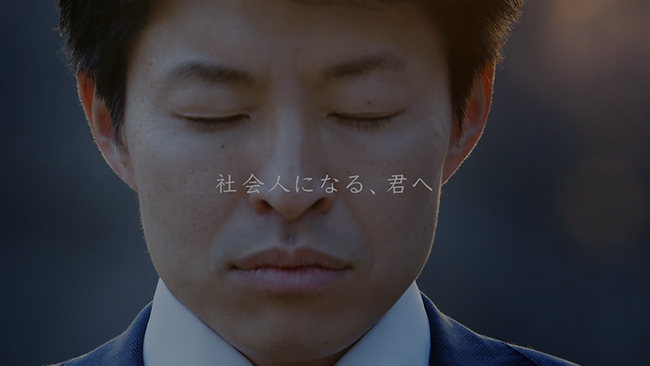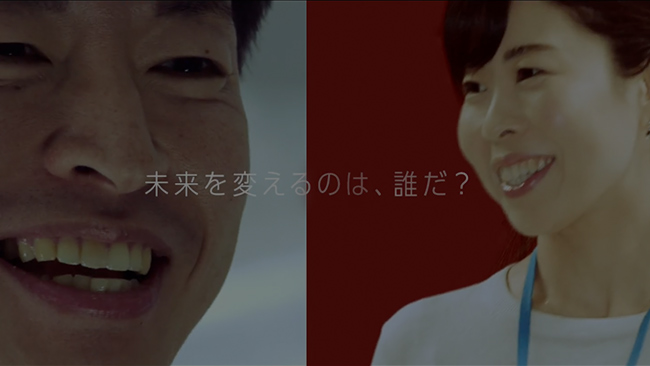
- 新卒採用TOP
- インタビュー
- 外国籍社員インタビュー
- ラジト アンジャリ

Hitachi welcomed me for my IT skills
Hitachi welcomed me
for my IT skills
I studied IT at a university and worked as an engineer for two years in my home state in southern India, but then I became eager to learn more with my studies. I looked at universities in the U.S., the UK, and Japan. Fortunately, I was awarded a scholarship to do my master's studies at a university in Japan. Their international graduate program offered in English was more research-oriented, unlike in India where the studies are more textbook-oriented. I got to study independently and come up with my own ideas. I also got to know students from many different countries, so it was an eye-opener for me.
In the second year of my master's program, I started applying to companies. I went to job forums and got interviews, but most Japanese companies expected applicants to write their exams in Japanese. I had a basic knowledge of grammar, but I wasn't quite ready to take exams in Japanese. With Hitachi, the Job Matching program conducted interviews and prepared all the materials in English. Their approach was very welcoming, especially for non-Japanese people and for women. It was clear that Hitachi was interested in my IT skills. And once I joined the company, the HR staff and managers in my department were also very supportive and welcoming.

Opportunities to grow and build connections
Opportunities to grow
and build connections
My department works to improve the software quality and efficiency of Hitachi products. I get to work with various problems from various business domains. Technologies keep changing, so I have never stayed in my comfort zone. Hitachi has given me many opportunities to work with its numerous group companies, which has helped me improve my knowledge in various domains. For example, I worked on a project that connects various kinds of applications, such as housing loans and electricity services, on the same platform. This will create a connected system that makes people's lives simpler.
I have also been able to use my language skills to fill communication gaps. I presented my research in English at the Hitachi Global Workshop in Naples. This workshop was conducted to find ideas from various parts of Hitachi that could be applied to other domains. I also led a collaboration between a Hitachi group company and a European company. In my role as the project leader, I acted as a mediator and talked with customers to understand what their challenges were. When you come to that level, you need Japanese language skills. I've been improving my Japanese skills by observing my fellow employees and taking notes on how they speak in presentations. And my mentors and colleagues have been really helpful and supportive, so I never feel hesitant to ask questions.

Generous support makes diverse employees feel included
Generous support makes
diverse employees feel
included
Hitachi is a global company, so we must align our solutions to cater to people not only in Japan but also worldwide. Solving these challenges requires thoughts and innovations from a wide range of perspectives. In terms of diversity, employees from different countries have differences in ways of speaking, cultures, and appearances, so there needs to be a feeling of inclusiveness. People will feel reluctant to give their opinions if there is not that feeling of welcoming. It's very important that we have an environment where we can properly communicate and learn. People should feel that this is my company, and I can contribute here. Hitachi has made a lot of efforts toward that.
Hitachi also has a good reward program that motivates employees and recognizes them for how they've contributed. They gave me very good support when I went on maternity leave. And after I came back, they set up a special workshop I attended with my manager that taught us how to manage work and childcare. That's a time when you need a lot of support from the company, and Hitachi's efforts made me feel that they really have a concern about me. That kind of understanding is very important. And they have even reached out to me to help employees hired from abroad make adjustments to the company and to life in Japan. I really appreciate that effort. In the future, I aim to collaborate with more research units overseas and to use my language skills for the betterment of the company and myself.

Anjali Rajith / ラジト アンジャリ
2015年入社 情報工学系修士課程修了
インド出身。
研究開発グループ デジタルサービス研究統括本部 サービスシステムイノベーションセンタ DXエンジニアリング研究部
MOVIE
- 「未来を変えるのは」編
- 「未来を変えるのは、私」編



